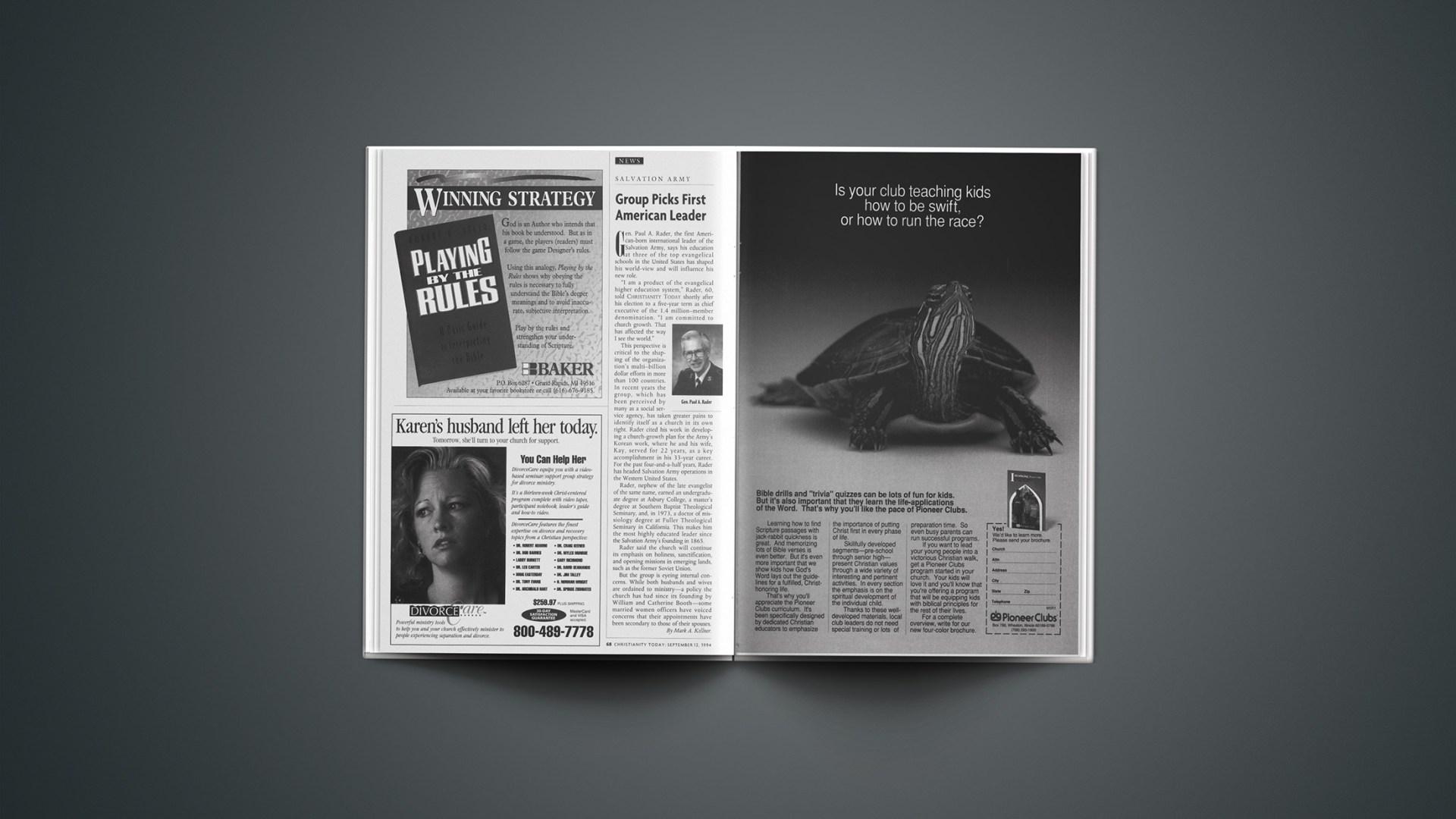Gen. Paul A. Rader, the first American-born international leader of the Salvation Army, says his education at three of the top evangelical schools in the United States has shaped his world-view and will influence his new role.
“I am a product of the evangelical higher education system,” Rader, 60, told CHRISTIANITY TODAY shortly after his election to a five-year term as chief executive of the 1.4 million-member denomination. “I am committed to church growth. That has affected the way I see the world.”
This perspective is critical to the shaping of the organization’s multi-billion dollar efforts in more than 100 countries. In recent years the group, which has been perceived by many as a social service agency, has taken greater pains to identify itself as a church in its own right. Rader cited his work in developing a church-growth plan for the Army’s Korean work, where he and his wife, Kay, served for 22 years, as a key accomplishment in his 33-year career. For the past four-and-a-half years, Rader has headed Salvation Army operations in the Western United States.
Rader, nephew of the late evangelist of the same name, earned an undergraduate degree at Asbury College, a master’s degree at Southern Baptist Theological Seminary, and, in 1973, a doctor of missiology degree at Fuller Theological Seminary in California. This makes him the most highly educated leader since the Salvation Army’s rounding in 1865.
Rader said the church will continue its emphasis on holiness, sanctification, and opening missions in emerging lands, such as the former Soviet Union.
But the group is eyeing internal concerns. While both husbands and wives are ordained to ministry—a policy the church has had since its founding by William and Catherine Booth—some married women officers have voiced concerns that their appointments have been secondary to those of their spouses.
Copyright © 1994 Christianity Today. Click for reprint information.










